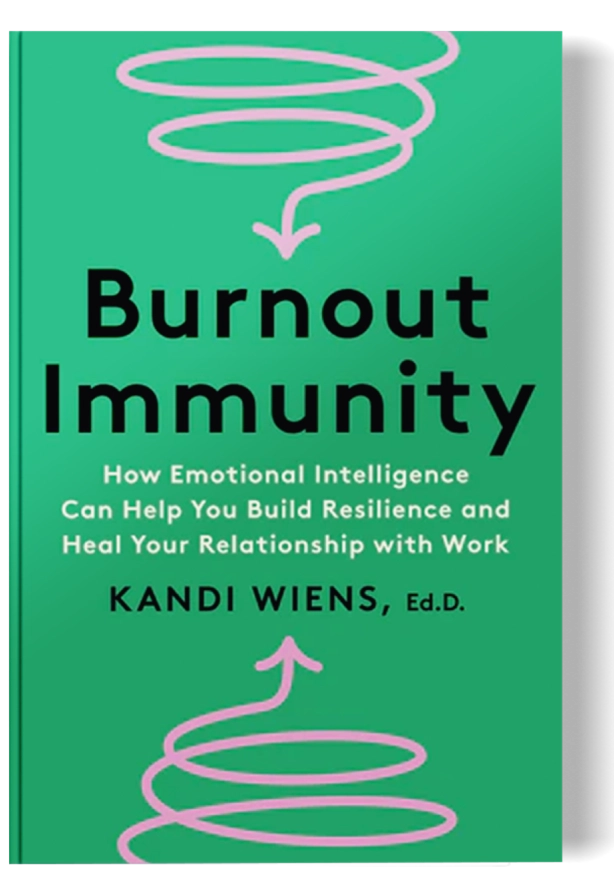If you’ve been following along, you know that last year was the most rewarding and most painful year of my life (more on that below).
I’m glad the chapter is closed on 2024, and I’m enjoying January’s “fresh page” energy: new year, new semester, and a new focus for me personally and professionally: meaningful work.

Meaningful Work: Three Core Attributes
Plenty of ink has been spilled on what makes work meaningful (often by employers, trying to attract and retain dedicated employees), but wait a minute—doesn’t it depend entirely on the individual?
Well yes, but also no. My hot take (based on the research for my book Burnout Immunity) is that while meaningful work is highly specific to the individual, I see the following themes in my research:
- Meaningful work has intrinsic value to you. It’s a vehicle of self-expression, it supports your purpose, and/or it contributes to your self-actualization.
- It’s work that has “prosocial value”. You feel that your work helps others or improves their lives, contributes to the greater good, or furthers a cause.
- It allows you to feel appreciated, needed, and valued. That might be the explicit recognition you receive, or simply knowing that what you do makes a positive difference to its beneficiaries.
Also, if you ever feel that warm, tingly sense of purpose and impact while you’re working – that, my friend, is meaningful work!
Who wouldn’t sign on the dotted line for all of the above? And studies agree: Research found that more than 9 out of 10 workers would accept less money—on average, 23% less of their future lifetime earnings—in order to have a job that is meaningful.
But buyer beware: meaningful work is no guarantee of sunshine, roses, or burnout immunity. It’s important to be aware of the hidden downsides of devoting yourself to meaningful work.
When Meaningful Work Backfires
When you’re passionate about your cause or (maybe) overcommitted to your organization’s mission or goals, you can easily become overextended. The risk is high for exhaustion, depersonalization, and, down the line, a lack of efficacy (which is that sh*tty feeling that you’re ineffective or not performing at your best).
When work becomes the central focus of our lives (for any reason), or when our identity gets excessively wrapped up in what we do for a living, we run the risk of making too many personal sacrifices and losing sight of our own self-care, leaving us ripe for burnout.
No matter how meaningful it is, without sufficient periods to rest and recharge, even meaningful work will not protect you from becoming overwhelmed and depleted.
What Work is Most Meaningful to You?
When I sat down to consider it, I realized that the following give me that tingly sense of purpose and impact:
1. Conducting empirical research that helps me 1) translate good quality science into practice and 2) get at the core of something I’m super interested in or passionate about.
For example: right now I’m studying something called hurry sickness (on this topic: The Insidious Effects of Hurrying is my latest for Harvard Business Review) and I’m fascinated by what conditions help people have a healthy relationship with work. By the way, I’ll be recruiting participants for my own research on this topic soon. If that piques your interest, hit reply and let me know!
2. Helping people learn how to deal with work stress and protect themselves from burnout via keynote presentations, workshops, writing, media interviews, and coaching (you can bring me to speak at your organization here). It gives me extra warm fuzzies when I’m working with individuals who are serving their communities, like teachers and other educators, K-12 principals and superintendents, clinicians, clergy leaders, activists and non-profits.
3. Creating and delivering learning programs aimed at helping our students improve and evolve their medical education practices via Penn’s MedEd Master’s program.
4. Guiding our doctoral students to become scholar-practitioners who can confidently conduct meaningful studies of their own. This semester I’m chairing dissertation committees for Lauren Weinstein, James Timm, Conor Kelly, and Chakilla Robinson (just wait ‘til you see their research…it will blow you away!)
I’m excited to prioritize meaningful work this year because it reminds me of the positive impact I can have in the world. It protects me from burning out on work that isn’t as meaningful (hello grading papers!). It helps me keep my boundaries. And importantly, it helps to model for my three boys that work can be less about collecting a paycheck and more about being a positive force in the world.
Meaningful work is the stuff that matters, to others and to yourself. I think you’ll agree we could all use a lot more of that in our world.
— Kandi



